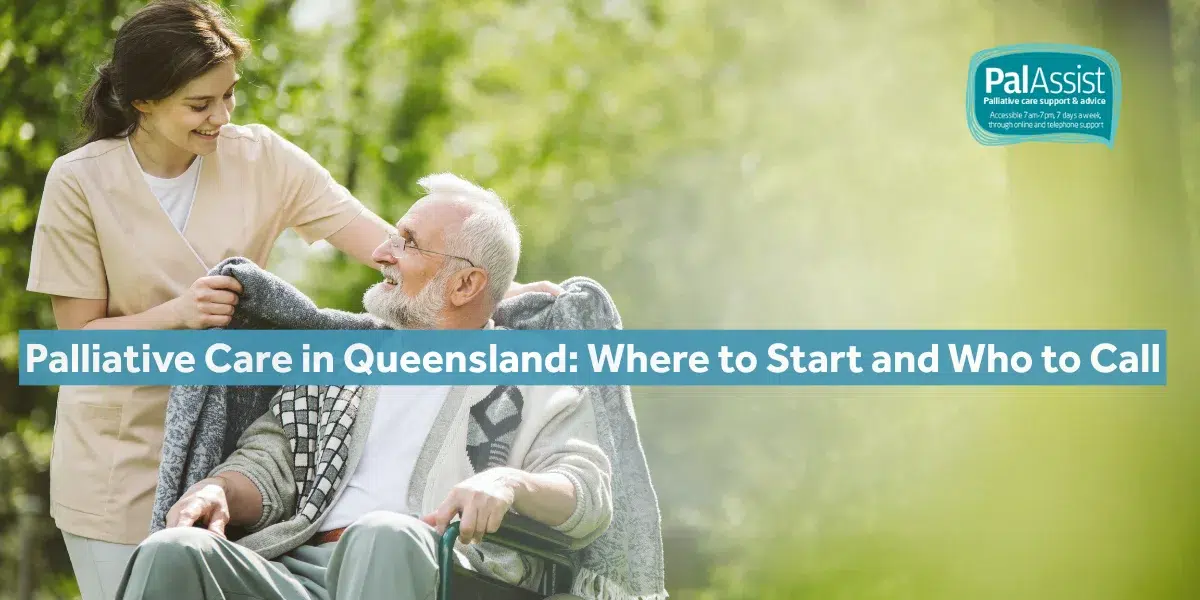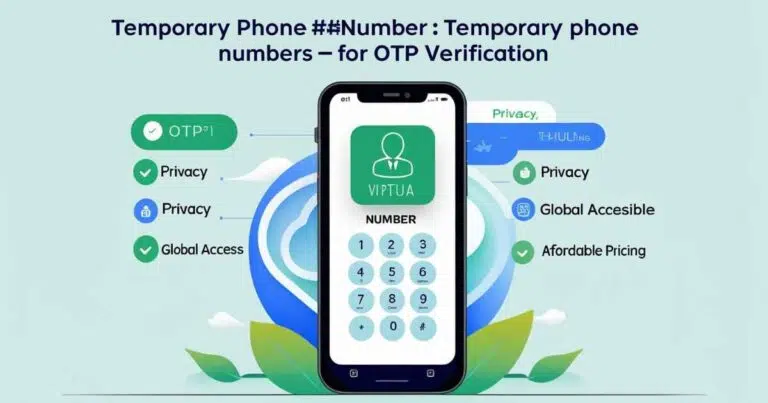When your loved one receives a life-limiting diagnosis, the next steps can feel unclear and overwhelming. You might wonder where to even begin or who to call for help.
Many Queensland families face this same uncertainty, unsure how to access the support their loved one needs during this difficult time.
We know how stressful these moments can be, and finding clear, practical information shouldn’t add to that burden. If you need immediate support or have questions, PalAssist provides free guidance from registered nurses who understand what you’re going through.
In this guide, we’ll walk you through the basics of accessing palliative care in Queensland. You’ll learn:
- What palliative care is and eligibility in Queensland
- How to get referred through your GP or hospital
- Care locations and associated costs
- Finding providers across the state
Read on to get the clarity you need and take your next step.
What Is Palliative Care?
Palliative care is specialised medical care that improves the quality of life for people facing serious illnesses. When someone receives a diagnosis of a life-limiting condition, it’s more important to live life as comfortably as possible rather than pursuing a cure.
The main focus is on managing pain and other distressing symptoms while addressing the physical, psychological, and spiritual needs that arise during this time.
This approach also recognises that serious illnesses create challenges that extend beyond physical symptoms alone. Patients often experience emotional distress, spiritual questions, and practical concerns that require thoughtful support.
That’s why palliative care teams work alongside your existing doctors to provide this comprehensive care. They can help you or your loved one maintain dignity, comfort, and the best possible quality of life throughout the journey.
Who Can Access Palliative Care Services in Queensland?
Anyone with a progressive life-limiting condition can access these services in Queensland, regardless of age. You don’t need to be in the final weeks or days of life to receive this support. The care can begin at diagnosis and continue alongside other treatments.

Here’s who qualifies for the service:
People with Life-Limiting Illness
Life-limiting illnesses include any progressive condition where curative treatment is no longer the primary goal. Conditions that fall into this category include:
- Cancer
- Heart failure
- Dementia
- Respiratory diseases
- Neurological conditions
The service works alongside your active treatment. Your oncologist might continue chemotherapy to slow disease progression while palliative care manages your symptoms and supports your well-being.
Paediatric Palliative Care
When a child faces a life-limiting illness, families need specialised support that understands their unique needs.
Recognising this, the state provides age-appropriate care options at Children’s Health Queensland. Alongside that, specialised paediatric palliative care services also provide respite stays where families can take a break while their child receives expert care.
Support for Families and Carers
The best part about these services is that support extends beyond the patient to everyone affected.
When you’re caring for someone with a life-limiting illness, you face your own struggles with exhaustion, worry, and grief (that’s perfectly normal). That’s why carers and family members receive emotional and practical guidance throughout the journey.
The support doesn’t stop, even after your loved one passes. If you need help processing your loss, the bereavement service remains available through:
- Counselling services
- Grief support groups
- Peer connections with others (who understand your experience)
Now that you understand who qualifies for the service, let’s look at how you actually access these services.
How Do You Get a Referral for Palliative Care?
Getting a referral for this service starts with a conversation with your GP or specialist. Your doctor will then assess whether specialist palliative care is appropriate based on your symptoms, needs, and illness progression.

This referral process ensures you access the right level of support quickly. The process involves these steps:
Speaking with Your GP or Specialist
If you’re unsure how to bring up the topic with your doctor, you’re not alone in feeling hesitant. We’ve supported many families who felt the same uncertainty about starting this conversation.
Here’s what makes it easier: Start by describing how symptoms affect your daily life and what concerns you most. Your GP can then arrange a referral to your local specialist palliative care team.
Once you receive your referral, health professionals coordinate with the care providers to create a plan suited to your needs and circumstances.
Hospital and Health Service Referrals
Many referrals happen while patients are admitted to the hospital or shortly after discharge from Queensland health facilities. The advantage here is that hospital staff can initiate the referral process during your stay, which means support can begin before you even leave.
Where Can You Receive Palliative Care?
Worried that palliative care means your loved one must leave home and go to the hospital? That’s actually not the case.
In fact, many people receive care in their own home with nursing support visiting regularly. This option allows you to stay in familiar surroundings while still getting expert medical attention.
Beyond home, hospice facilities, hospital units, and aged care settings also provide support.
Plus, the community palliative team visits wherever you feel most comfortable and safe. So whether that’s your lounge room or a dedicated facility, the focus is on your comfort and preferences.
What Does Palliative Care Cost in Queensland?
The government provides most palliative care services free if you have a Medicare Card. However, some items like equipment and medications do require extra payment.
Let’s break down what you’ll pay for and what comes at no cost:
Medicare and Queensland Health Coverage
One concern families share is whether they can afford the care their loved one needs. Fortunately, public services are generally free with a valid Medicare card.
You’ll get:
- Free visits from nurses
- Doctor consultations
- Specialist assessments
These government-funded providers can ensure that quality palliative care reaches everyone, regardless of their financial situation.
We recommend confirming coverage details with your care team when you first connect with them. This helps you understand exactly what’s included in your specific situation and avoid any surprises down the track.
Potential Out-of-Pocket Expenses
While most services are free, some equipment, medications, and specialised resources do have costs.
You may pay for items like hospital beds, wheelchairs, or pressure-relieving mattresses that need to be hired for home use. Respite care and private services beyond standard offerings also incur additional costs.
And if you choose a private hospital, there will be fees, though Medicare and private health insurance rebates may apply to reduce your out-of-pocket expenses.
Once you understand the costs involved, it’s time to learn about the organisations that deliver this service across Queensland.
What Palliative Care Providers Operate in Queensland?
The state provides palliative care through public health services, community organisations, and specialised hospices. These providers deliver compassionate care through teams of doctors, nurses, social workers, and allied health professionals.
Both government-funded and charitable organisations operate throughout the state to ensure quality care reaches families during this difficult time. However, if sorting through these options feels overwhelming, you can reach out to us easily.
Our free telephone support service helps families understand their choices and find the right option. Also, registered nurses are available to answer any questions you have.
Connect with Us: Call 1800 725 277 (available every day, 7 am to 7 pm) to speak with someone who understands what you’re going through. You can also visit our online resources for additional guidance anytime you need it.
Finding the Right Support for Your Loved One
Sometimes accessing palliative care feels difficult. There are many questions families face, like understanding eligibility, finding the right providers, and knowing what costs to expect. But when you know where to start and who to contact, the process becomes much clearer.
We’ve covered what palliative care means and who qualifies for these services. You now understand the referral process, care locations, and provider options across Queensland.
The journey ahead may feel uncertain, but you’re not walking it alone. Whenever you need guidance or someone to talk through your questions, our team will be there with you every step of this journey.
Disclaimer
This blog provides general health and product information for educational purposes only. It is not intended to diagnose, treat, or replace advice from your healthcare professional. Always seek guidance from your GP, nurse, continence advisor, or pharmacist regarding your individual needs. If symptoms persist or you’re unsure about product use, consult a qualified healthcare provider.






